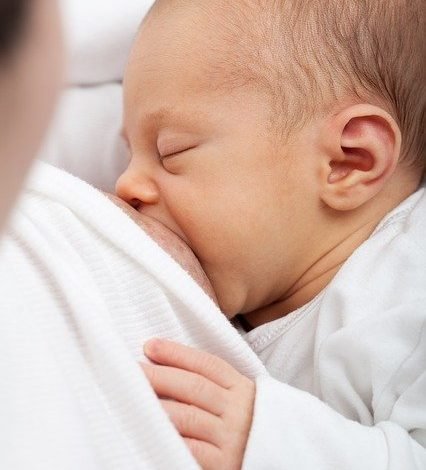
What you need to know: Breastfeeding while fighting breast cancer
What you need to know: Breastfeeding while fighting breast cancer
Breastfeeding is a complex but important task for many mothers, as it can be beneficial for the health of both the baby and the mother. Studies show that minimal breastfeeding reduces a woman’s risk of breast cancer by about 30 percent. This has even been shown in women with a BRCA1 mutation, which increases the risk of breast cancer.
What do the studies say?
The scientific community has several hypotheses about why breastfeeding reduces the risk of breast cancer. Pregnancy and breast-feeding reduce the number of menstrual cycles during a woman’s life, as well as her exposure to endogenous hormones, which are linked to breast cancer risk. Some researchers also believe that pregnancy and breastfeeding have a direct effect on breast cells, causing them to change so they can produce milk, preventing them from turning into cancerous cells.
Some studies also suggest that mothers who breastfeed may have a reduced risk of dying from breast cancer. Other research suggests that breastfeeding can reduce the mother’s risk of diabetes and the baby’s risk of developing cancer.
Diagnosing breast cancer during pregnancy or infancy can be difficult, delaying diagnosis. Symptoms of breast cancer are similar to those that can be caused by breastfeeding or inflammation of the breast tissue, including swelling, pain, discharge from the nipple, and redness.
Breastfeeding mothers are more likely to get false positives or inconclusive results on mammograms or ultrasounds. Some providers are also reluctant to recommend imaging and biopsies, because most symptoms are common during breastfeeding and do not necessarily indicate cancer.
A diagnosis of breast cancer during pregnancy and breastfeeding can complicate treatment. Newly pregnant women are slightly more likely to develop breast cancer than the general population over the next 10 years, possibly due to the hormonal changes involved. Some types of breast cancer treatment can be given safely during pregnancy, including certain types of chemotherapy, but others, such as surgery or radiotherapy, may need to be postponed.
Chemotherapy and breastfeeding
If a patient is diagnosed with breast cancer while breastfeeding, most doctors will stop breastfeeding. Many treatments used during breast cancer treatment can be passed to the baby through breast milk, including chemotherapy, hormonal therapies, and anesthesia given during surgery. Stopping breastfeeding will also reduce blood flow to the breasts, making them smaller, easier to examine, and less likely to get infections.
Some chemotherapy treatments can affect fertility, but many women are able to get pregnant after breast cancer treatment, even if they receive chemotherapy, radiation, and hormone therapy. Breastfeeding after surgery and radiotherapy to the breast can be challenging, but it should not be discouraged. These treatments can reduce the milk supply of the affected breast, but the other breast must still be able to produce milk.
Breastfeeding challenges many new mothers, and breast cancer can further complicate the situation. It is important to discuss these issues with your doctors if you are currently breastfeeding or plan to breastfeed in the future.
Learn more about what pregnant patients should know about breast cancer treatment options.



